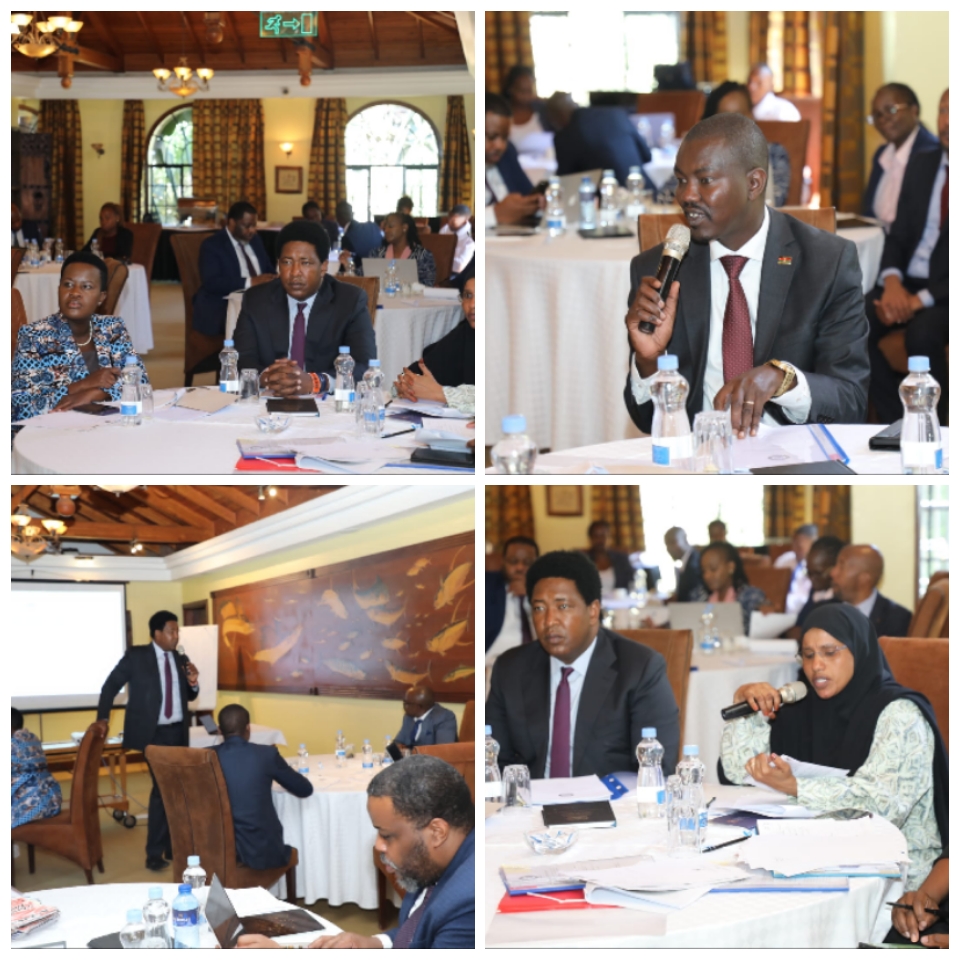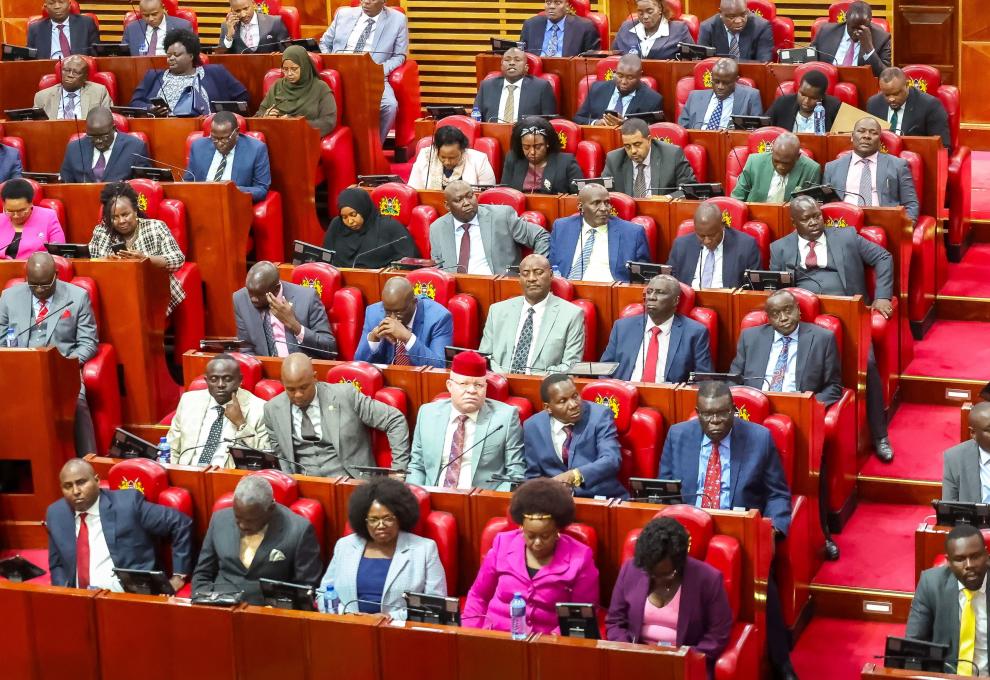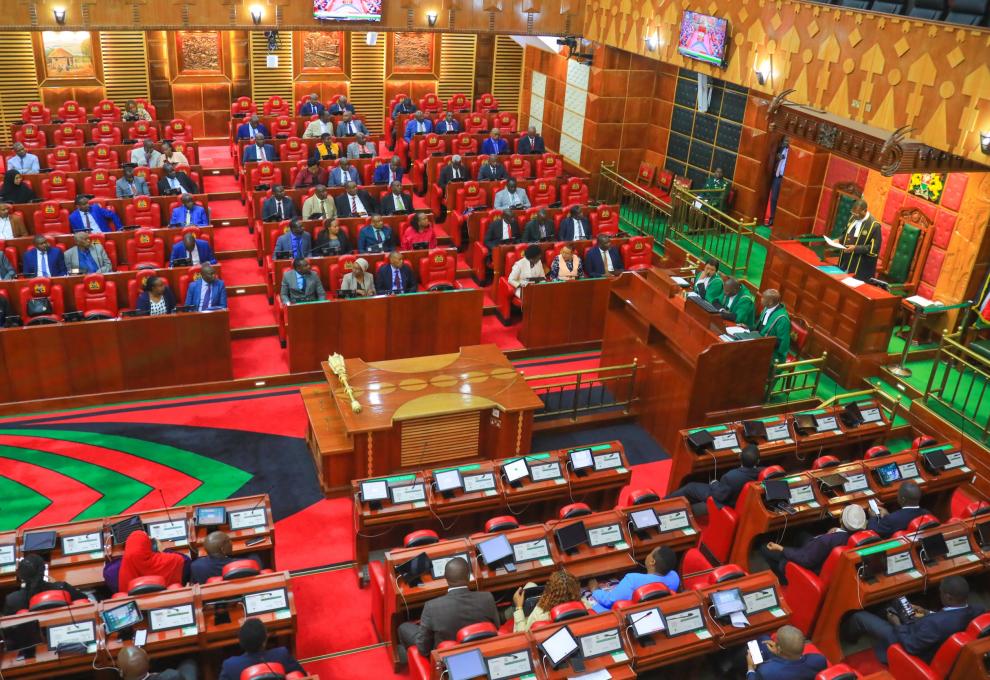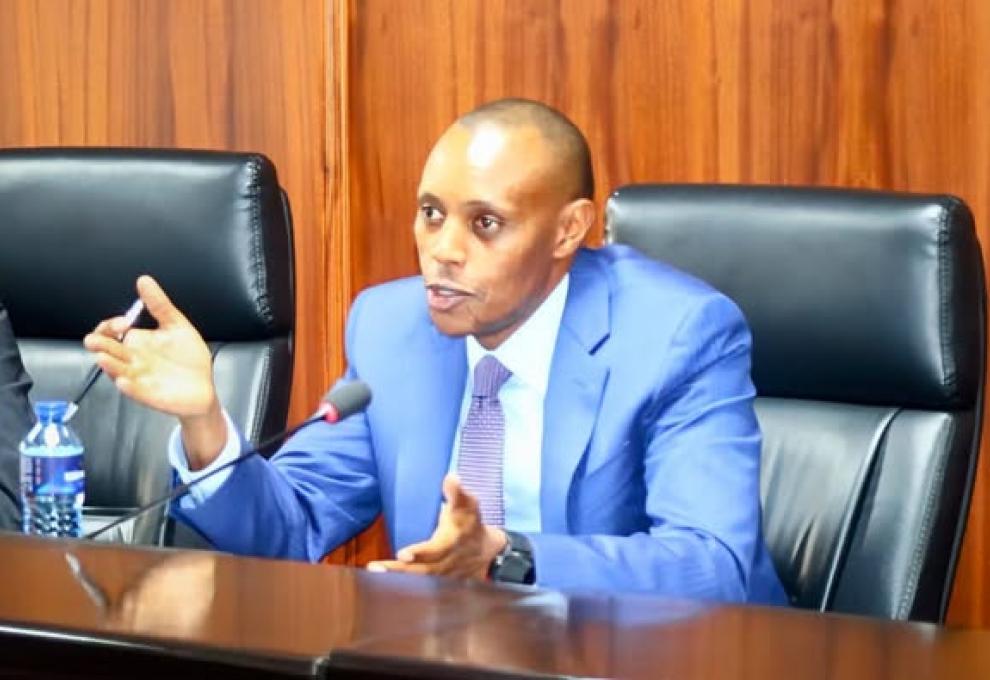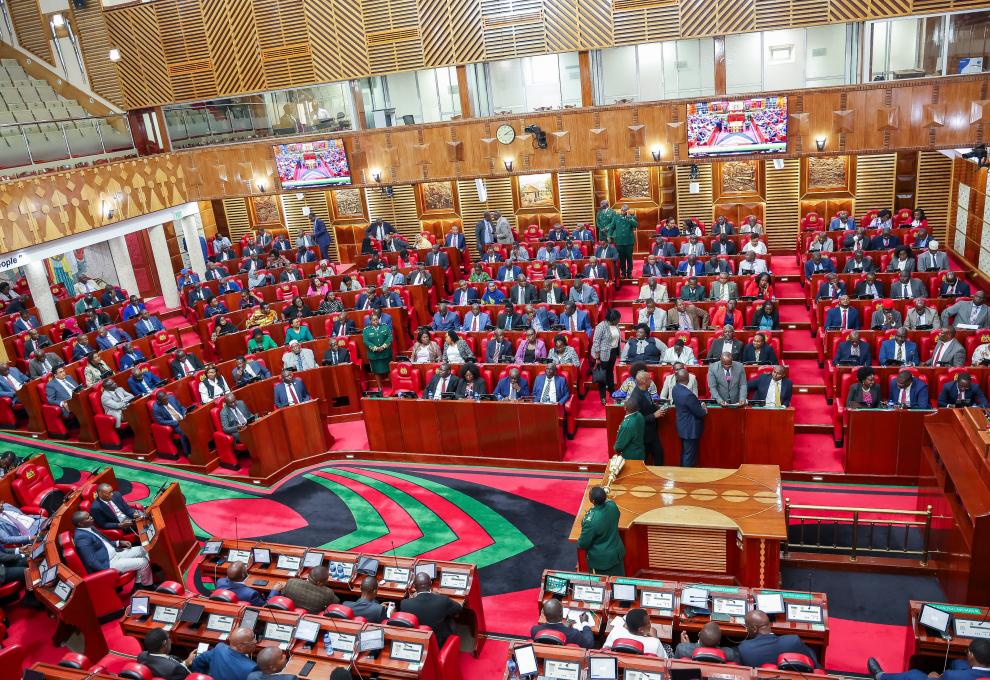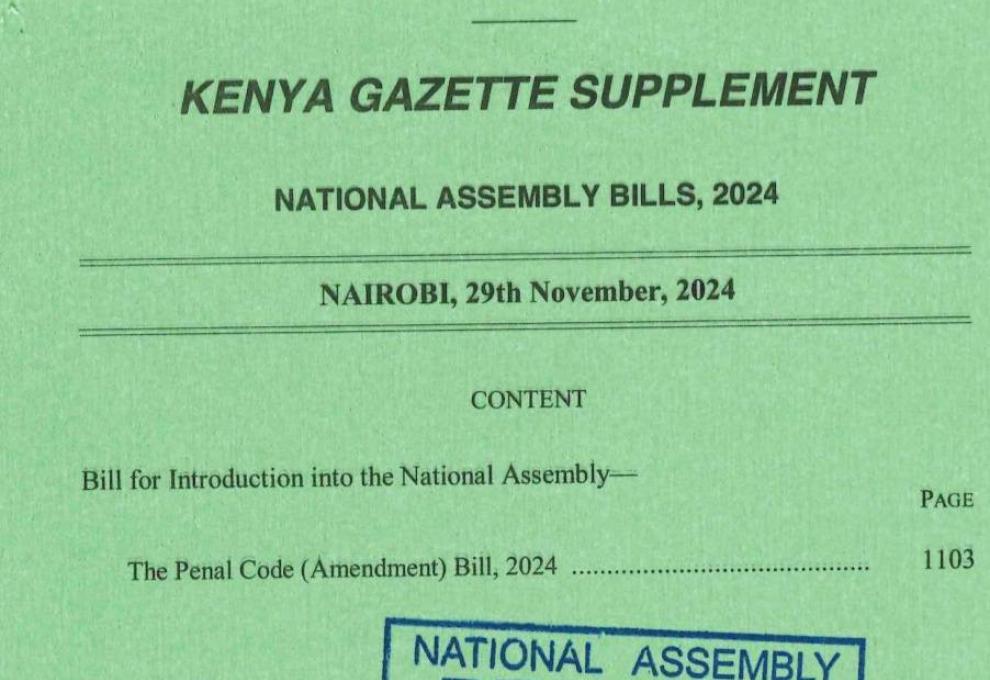𝐒𝐄𝐍𝐀𝐓𝐄 𝐇𝐄𝐀𝐋𝐓𝐇 𝐂𝐎𝐌𝐌𝐈𝐓𝐓𝐄𝐄 𝐇𝐎𝐋𝐃 𝐂𝐎𝐍𝐒𝐔𝐋𝐓𝐀𝐓𝐈𝐕𝐄 𝐓𝐀𝐋𝐊𝐒 𝐖𝐈𝐓𝐇 𝐓𝐇𝐄 𝐖𝐄𝐒𝐓𝐌𝐈𝐍𝐒𝐓𝐄𝐑 𝐅𝐎𝐔𝐍𝐃𝐀𝐓𝐈𝐎𝐍 𝐅𝐎𝐑 𝐃𝐄𝐌𝐎𝐂𝐑𝐀𝐂𝐘 (𝐖𝐅𝐃) 𝐎𝐍 𝐏𝐎𝐒𝐓 𝐋𝐄𝐆𝐈𝐒𝐋𝐀𝐓𝐈𝐕𝐄 𝐒𝐂𝐑𝐔𝐓𝐈𝐍𝐘 (𝐏𝐋𝐒) 𝐈𝐍𝐐
The Senate Health Committee, Chaired by Senator Jackson Mandago, today held a breakfast meeting with WFD together with the consultants contracted by WFD to conduct a PLS pilot enquiry on the Health Act ,2017 through the Committee and provide a report to the Senate.
According to Article 96 of the constitution, the legislation making process, oversight and representation are the crucial roles for both the Senate and National Assembly. The Senate Liaison Office being established to provide a nexus and come up with innovative ways to support Senate Committees, identified a gap for Post Legislative Scrutiny (PLS) to assess and determine if the bills enacted at the Senate continuously serve the intended purpose. PLS is an emerging concept tool that Committees of the legislation can use to utilize for monitoring and evaluating the passed laws.
With the support of Westminster Foundation for Democracy (WFD), a PLS assessment enquiry was conducted on the Health Act, 2017 from the month of February, 2023. The pilot inquiry was to expose the Senate to the relevant procedure of executing the process in a structured manner with a view of the Senate actively prioritizing performing PLS by building existing structures and procedures. Health being a major sector affecting both national and county governments, there is a need to ensure there is effective implementation of the provisions provided in the Act.
The consultants reported that an assessment was done to find out how far the Health Act, 2017 has been institutionalized. It was reported that PLS is a mechanism that the Senate can use to ensure that the passed laws are implemented. This is because legislation success is no longer a formal enactment of a bill unless the bill enacted into law demonstrates that by achieving its purpose. The Senate under Standing Order 228 4(b) can institutionalize PLS as a primary role tool in all Committees, establish a stand -alone Committee or establish PLS for directorates or departments at the Senate.
Challenges such as low numbers of skilled staff, inadequate enforcement of standards, regulatory provisions, low coverage health insurance, lack of clarity on health laws, over regulation on health professions and stakeholders and inadequate infrastructure were revealed from the inquiry. In order to address the challenges identified, it was recommended that the budget allocation for the implementation of the act should be increased, a comprehensive assessment of existing healthcare be improved, implementation of a strong communication strategy between the healthcare professionals and stakeholders, invest in capacity building and implementation of a monitoring tool to evaluate the progress of the Acts implementation.
The Committee, through the Chair, pledged to engage further to ensure that the recommendations are implemented. "The Committee will work on coming up with a Health amendment bill which will be implemented based on the key findings on the inquiry report" stated Senator Mandago. The Chair concluded the meeting by appreciating WFD for their continued support and ensured WFD that the Committee will continue to work closely and engage further with them to standardize health operations by developing clear guidelines and policy frameworks at county level.
Other Members present at the meeting were Vice-Chair Sen.Omar Marriam Sheikh, Sen.Esther Okenyuri, Sen.Raphael Chimera, Sen.Ole Kina Ledama and Sen.Joe Nyutu.



